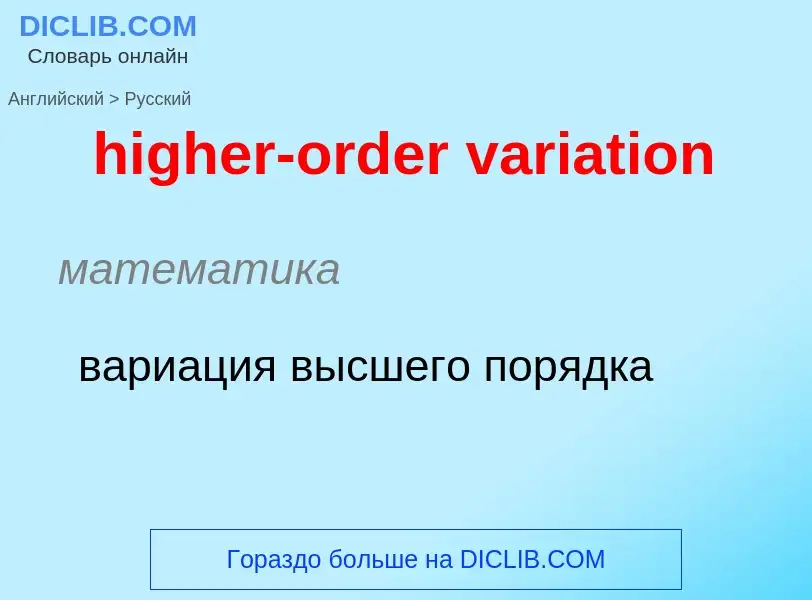ترجمة وتحليل الكلمات عن طريق الذكاء الاصطناعي ChatGPT
في هذه الصفحة يمكنك الحصول على تحليل مفصل لكلمة أو عبارة باستخدام أفضل تقنيات الذكاء الاصطناعي المتوفرة اليوم:
- كيف يتم استخدام الكلمة في اللغة
- تردد الكلمة
- ما إذا كانت الكلمة تستخدم في كثير من الأحيان في اللغة المنطوقة أو المكتوبة
- خيارات الترجمة إلى الروسية أو الإسبانية، على التوالي
- أمثلة على استخدام الكلمة (عدة عبارات مع الترجمة)
- أصل الكلمة
higher-order variation - ترجمة إلى الروسية
математика
вариация высшего порядка
математика
предикат высшего порядка
[ve(ə)ri'eiʃ(ə)n]
общая лексика
вариация
изменчивость
изменение
вариационный
варьирование
колебание
колебательность
магнитное склонение
неравномерность
отклонение
разновидность
ход зависимости
нефтегазовая промышленность
отклонение (от номинальной величины)
Смотрите также
существительное
общая лексика
изменение
перемена
варьирование
колебание
разновидность
вариант
отклонение
изменение, перемена
склонение магнитной стрелки
специальный термин
вариация
физика
магнитное склонение
грамматика
флексия
биология
аберрация
генетическая изменчивость
мутация
تعريف
ويكيبيديا
In mathematics and logic, a higher-order logic is a form of predicate logic that is distinguished from first-order logic by additional quantifiers and, sometimes, stronger semantics. Higher-order logics with their standard semantics are more expressive, but their model-theoretic properties are less well-behaved than those of first-order logic.
The term "higher-order logic", abbreviated as HOL, is commonly used to mean higher-order simple predicate logic. Here "simple" indicates that the underlying type theory is the theory of simple types, also called the simple theory of types (see Type theory). Leon Chwistek and Frank P. Ramsey proposed this as a simplification of the complicated and clumsy ramified theory of types specified in the Principia Mathematica by Alfred North Whitehead and Bertrand Russell. Simple types is nowadays sometimes also meant to exclude polymorphic and dependent types.

